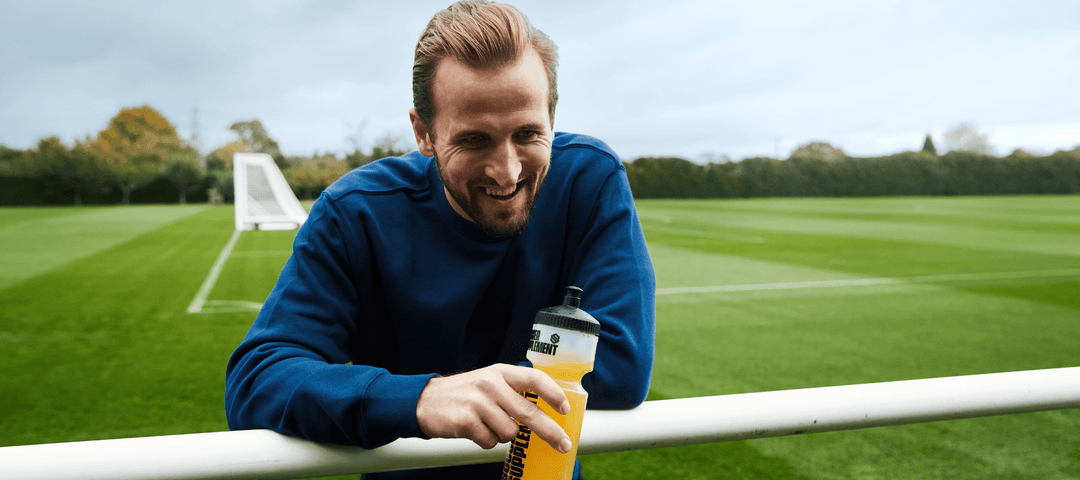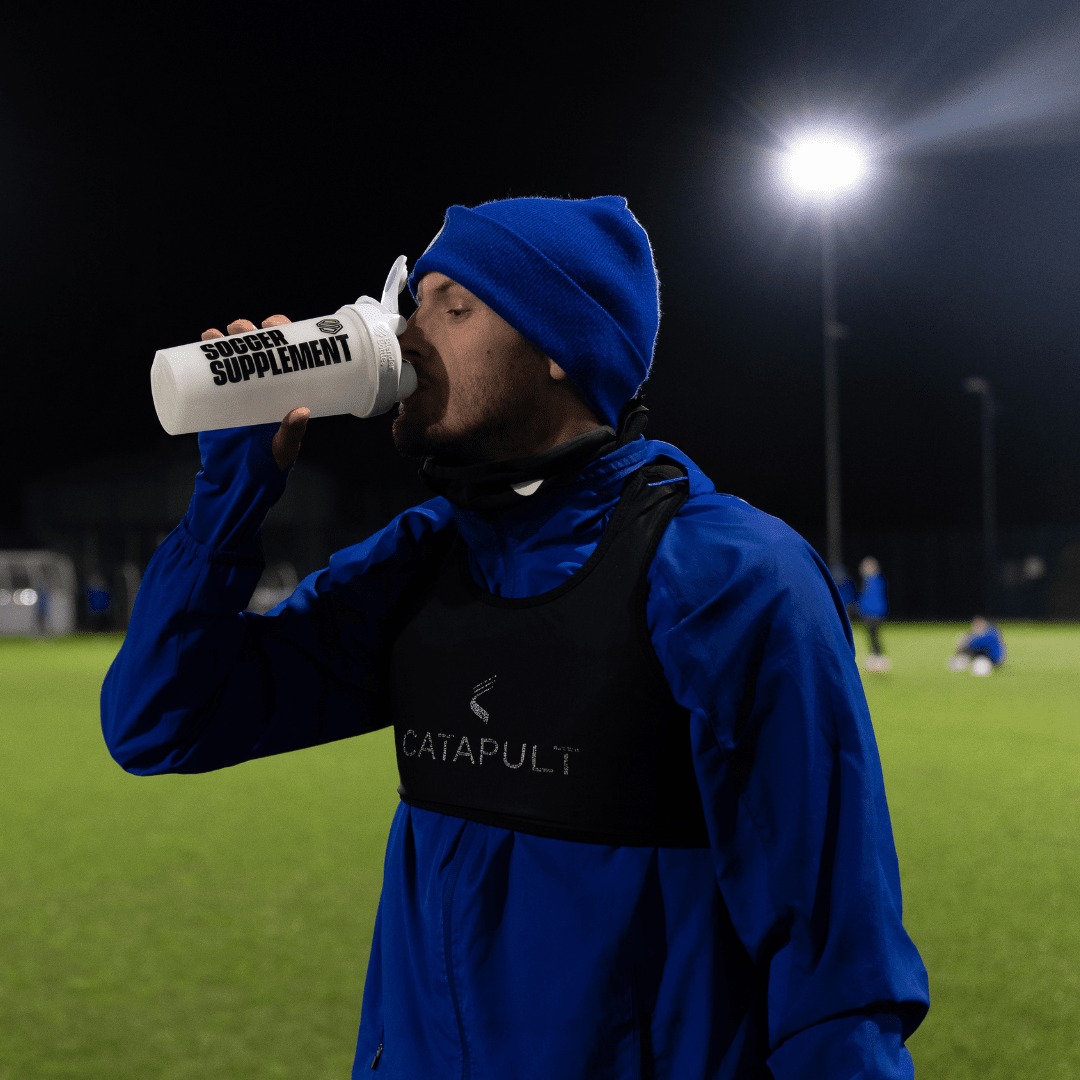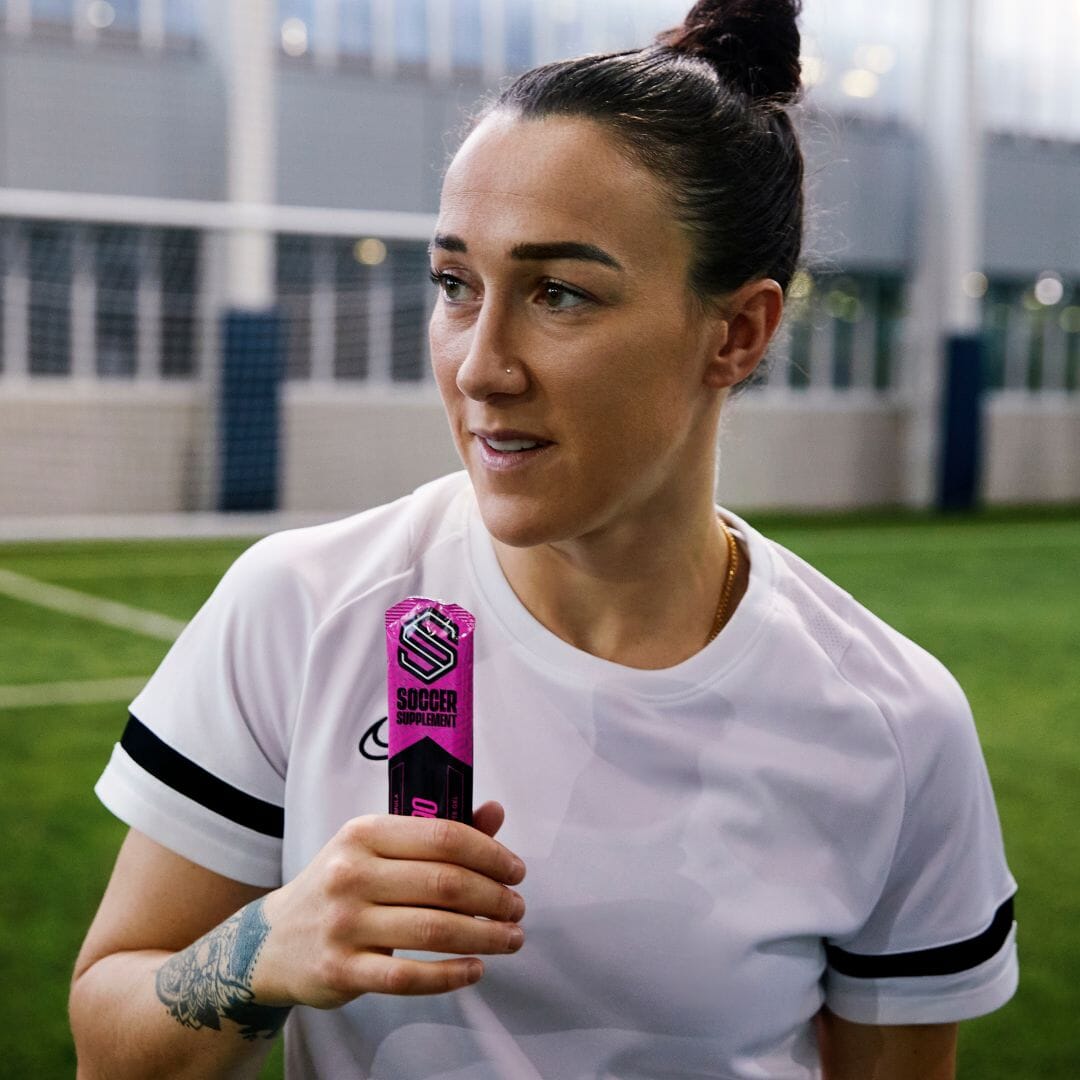Whether you prefer an espresso, americano, cappuccino, or triple venti half-sweet non-fat caramel macchiato, it’s clear that we are a nation of coffee lovers! The good news is that this can translate to better performance on the pitch for footballers.
As with everything in sports nutrition, getting the best from your cup of joe depends on things like when you take it and how much you take. In this article, we explore how coffee and football go together.
The caffeine in your cup of coffee has plenty of benefits when it comes to boosting your performance, whether in the gym, during training, or playing a match.
One of the main reasons we reach for a caffeinated beverage like coffee every morning is that it can reduce feelings of fatigue and give you that figurative slap across the face needed to wake you up.
However, extensive research on caffeine has suggested that it can significantly enhance your physical performance in several measurable ways, such as improving your power production, endurance capacity and jumping performance.
Research also suggests that ingestion of the stimulant may be beneficial to agility of footballers during a match, as well as improved passing accuracy. Perhaps a cup of coffee won’t turn you into the next Neymar, but it can certainly help you reach your potential.
Coffee can also potentially help you recover better, with studies indicating that caffeine can reduce post-exercise muscle soreness in some people – perfect in the days that follow a tough game, or for players who take on a lot of activity during the week.
In addition to physical movement, another key benefit of caffeine consumption prior to football is an increase in mental alertness and concentration. It goes without saying that staying focused on the game when others around you are flagging can give you a certain edge.
It’s nice to have a coffee with breakfast, but when is the best time to take your pre-match caffeine? Knowing that caffeine reaches its peak level in your blood between 30 to 60 minutes after consumption, means that a quick coffee in the hour leading up to your match is ideal.
What do you do when you don’t like the taste of coffee? Or when you are heading for kick off and realise that there isn’t an espresso machine nearby (hint: most Sunday league changing rooms probably don’t have espresso-making facilities…)?
This is where caffeine supplements come in.
For example, our tasty Focus90® caffeine energy gel has been designed specifically for footballers. Used at every level from Sunday league to Premier League, Focus90 contains three active ingredients including 200mg of caffeine to deliver the mental and physical benefits we have already discussed. This is paired with 6g of citrulline malate (an ingredient that can enhance blood flow and nutrient uptake) and 3g of beta alanine for reduced muscle fatigue, so you can go harder for longer.

Now, before you go nuts and rack up a double-figure Starbucks tab, too much caffeine is far from desirable and can have some negative effects.
Caffeine intake through the day should be limited. Guidelines from health organizations state that it is safe for most healthy adults to consume up to 400mg of caffeine every day. This upper limit is a good reason why supplements can be a good idea, as you know exactly how much caffeine you are consuming per gel (e.g. 200mg) as opposed to guessing what your large takeout coffee is offering. Considering that the caffeine content of the ‘average’ cup of coffee is anywhere between around 50mg to 450mg+ and you will see what we mean!
Being able to monitor your caffeine intake in important because too much can cause some problems with both the central nervous system (such as jitters, irritability or headaches) and the digestive system (including nausea and diarrhoea – not something any footballer wants to be taking with them to the pitch).
It is also sensible to consider your caffeine intake before night games and evening training. Sleep is crucial for recovery, and too much caffeine can disrupt your sleep. Some studies suggest that caffeine can reduce both deep sleep and total sleep by up to an hour a night. How disruptive it can be will depend on many factors, such as how much caffeine you usually have, how late you go to bed and how well you usually sleep.
A final thing to consider when taking caffeine for football is that caffeine is considered a mild diuretic. This means that it can cause you to pee more, which can contribute to dehydration if you drink it in excess, especially when combined with intense exercise and not taking on enough water.
Any wise footballer will always place hydration at the top of their priority list. Drinking ample water throughout the week is usually sufficient, although if you are training and playing hard, our Hydrate90® tablets offer a convenient way to increase your levels of electrolytes and key vitamins without any extra carbohydrate or sugar.
Remember that no amount of coffee or caffeinated supplements will make up for a bad diet. Coffee can be a significant performance booster, but if you aren’t fuelling and hydrating properly it won’t have the same effect.
However, nail your nutrition then add a few cups of coffee into your pre-match plan and you may notice a significant improvement over your non-caffeinated self!
Click here to shop our range of Football Performance Supplements










